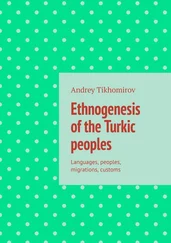Ogden’s plan wasn’t without merit. The promotion of plain language is a fine idea and I’m all for it. A simplified form of English is clearly a good thing for someone trying to learn the language. In 1959, two years after Ogden’s death, the Voice of America began broadcasting news stories in something they called Special English, and these programs are still popular today in non-English-speaking countries all over the world. Special English is simplified, but not according to any particular theory or rules. It doesn’t have anything against verbs, and while it has a core vocabulary of fifteen hundred words, other terms are introduced when they are needed, along with brief explanations. The few rules it does claim—no passive voice, one idea per sentence—are violated when they interfere with sensible judgment. It is what Basic English probably would have become if Ogden wasn’t so hung up on grand philosophical justifications for his system. Or with having it be a “system” rather than a loose set of guidelines.
Basic English also might have had a better chance if Ogden had been a little less eccentric. But it almost didn’t matter what his personality was like, for by the time he came along, the whole endeavor of inventing or even manipulating a language had been so thoroughly tainted with the eau de quackery that even the most sober, sensible language inventor had little hope of being taken seriously.
Language schemes had always been viewed a little skeptically. John Locke, a contemporary of Wilkins’s, said he didn’t think that anyone could “pretend to attempt the perfect reforming the languages of the world, no not so much as of his own country, without rendering himself ridiculous.” But in the seventeenth century, highly prestigious people were working on the development of philosophical languages, and their work was circulated and discussed among the biggest names of the day.
And although at the beginning of the era of international languages, plenty of jokes were made at the expense of Volapük and Esperanto and other languages that came to public attention, they did get attention, and sometimes from quite esteemed sources. Respected institutions like the American Philosophical Association and the American Association for the Advancement of Science got involved in the international language question, and major papers reported on the different projects as they came out. Esperanto got a lot of press. In 1910, when the sixth universal Esperanto congress was held in Washington, D.C., the Washington Evening Star carried the headline “Zamenhof Alvenas” (Zamenhof Arrives), and the Washington Post ran daily stories on the program of events.
Public recognition of invented languages manifested itself in other ways, too. A Scottish company produced an Esperanto cigarette (“The international smoke”), and Cadbury manufactured an Esperanto chocolate. When the universal congress was held in Barcelona, the king of Spain sent a horse-drawn carriage to pick Zamenhof up on his arrival. Later, as Zamenhof traveled south to Valencia, groups of people came out to greet his train at different stations, waving and cheering him on.
As time went on and the crackpot element of Esperanto society became more pronounced, people concerned about their public image became less willing to be associated with it. And as the number of invented languages increased to the point where the language inventors were (in the words of one newspaper editorial) fixing to “out-Babel Babel,” the newspapers and the scientific academies stopped paying attention.
Hundreds of language projects were published at the beginning of the twentieth century, and many of them were second or third attempts by people who weren’t quite satisfied with their own original “optimal” solutions. Language inventors are, after all, motivated by the urge to reform and improve, and many of them, once they got going, found it hard to stop. They grew dissatisfied with their own projects and continued to tinker and adjust, publishing revised versions of their languages. Ernst Beermann, not satisfied with his Novilatiin (1895), later created Novilatin (1907). Woldemar Rosenberger (onetime director of the Volapük Academy) created Idiom Neutral (1902), followed by Idiom Neutral Reformed (1907), followed by Reform-Neutral (1912). Some of the most prolific producers were former Volapükists, such as Julius Lott, who gave us Verkehrssprache (1888), Compromiss-Sprache (1889), Lingua Internazional (1890), Mundolingue (1890), and Lingue International (1899); or Esperantists, such as René de Saussure (brother of Ferdinand, the father of modern linguistics), who gave us Antido I (1907), Antido II (1910), Lingvo Kosmopolita (1912), Esperantida (1919), Nov-Esperanto (1925), Mondialo (1929), Universal-Esperanto (1935), and Esperanto II (1937).
One particularly productive multiple offender was Elias Molee, the author of American Language (1888), Pure Saxon English (1890), Tutonish (1902), Niu Teutonish (1906), Altuto-nish (1911), Alteutonik (1915), Dynamic Language (1921), and Toito Spike (1923). Molee was born in Muskego, Wisconsin, to recently arrived Norwegian immigrant parents. In his autobiography, molee’s wandering (written without capital letters, which he considered “cruel, non-ethical, non-artistic, and non-scientific”), he describes an idyllic childhood spent listening to tales of Norse mythology in his family’s log cabin, eating “good pancakes with milk in e dough n much egg n butter in it,” and roaming the fields picking fresh berries, plums, and nuts with the local children. Most of the neighboring families were Norwegian, but there were also quite a few Germans, as well as one or two English-speaking American households. As the children played, they developed their own little dialect, which they used to communicate with one another: “1 day we caught hold of 1 or 2 english words from henry n mary adams, at another time, 1 or 2 words from otto n emma shumaker in low german, sometimes they learned 1, 2, or 3 words from e tveite or e molee children in norwegian, as e norwegian n german children were e most numerous, e new union language leaned largely toward e teutonic side with very few latin words.” They called their language “tutitu” and even used it to act as interpreters between their parents.
Molee later attended Luther College in Iowa and studied languages at Albion Academy and the University of Wisconsin. He did not like having to study Latin and Greek, and resented the way their influence made English more difficult than it needed to be. He once read a sermon and didn’t understand the word “cacophonous.” He “felt chagrined and humbled to think that after graduating at an American Academy and after having studied so as to speak and enjoy several languages, after having learned considerable Latin and a little Greek, yet I could not understand so popular a production as a sermon.” As far as he was concerned, English had ceased to be a great language with the Norman Conquest. Why couldn’t it be more like the “teutonic” languages, he thought, such as German, which instead of the Greek-based “cacophonous” has its own word, übellautend (ill sounding), formed out of its own Germanic roots?
Molee began to work on a language with a consistent spelling system and a regular grammar that was based on common Germanic roots. He started with American Language or Germanic English (1888):

“Then drew near all the publicans and sinners for to hear him.” (Luke 15:1)
This then became Pure Saxon English (1890):

Читать дальше














